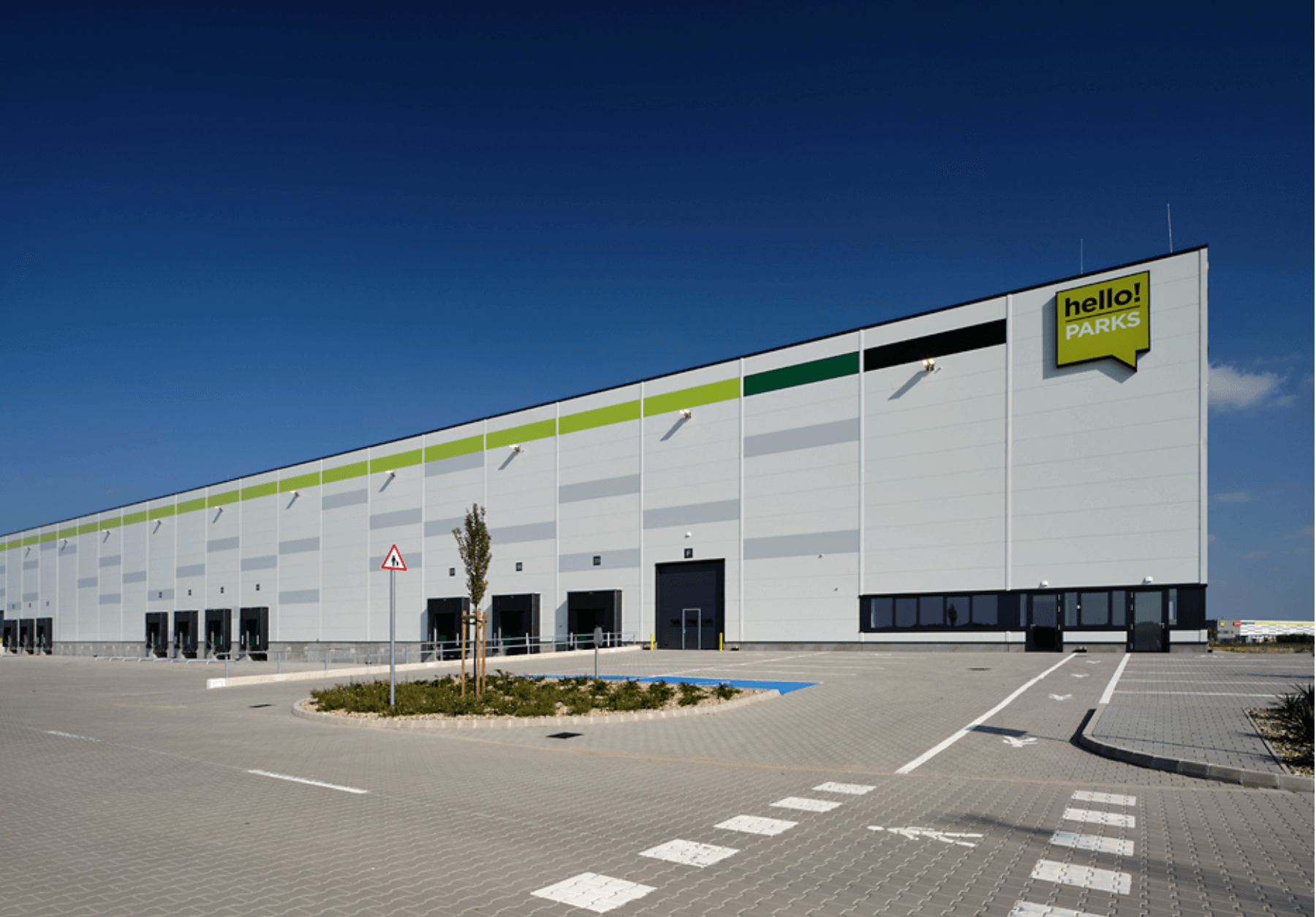In addition to the finished building, the complete design, construction, and project management process is evaluated in the New Construction category, from the sourcing and transport of raw materials to waste management and the technologies used and installed. The developer attained the rating with the professional assistance of Abud Mérnökiroda Kft.
The company was the first in Hungary to attain an “Excellent” rating in the industrial real estate category, specifically with the HelloParks Maglód MG1 hall. Since 2023, it has also remained the only developer to build all of its new facilities to the strictest Breeam New Construction “Outstanding” criteria.
Sustainability Roadmap
The goals outlined in HelloParks’ HelloZero ESG strategy which was introduced earlier this year, meet the United Nations’ sustainable development goals to comply with the Paris Agreement’s objective to limit the increase in global temperature to 1.5°C. The organization has established an exclusive carbon reduction roadmap up to 2035, which sets it apart in the domestic market. Sustainable water and waste management are key priorities, in addition to mitigating climate change, with a constant focus on biodiversity.
Embodied carbon emissions for new buildings will be reduced by 25% from 2025 and by 50% from 2030 when compared to the developer’s previous buildings, which already meet levels similar to Western European developments. In addition, each facility will have an average solar capacity of 2.5 MW installed. The goal is to achieve net-zero emissions for the operational carbon footprint of new buildings by 2028 and ensure a 100% renewable energy supply.
“The advantages of state-of-the-art, energy-efficient megaparks are also becoming increasingly important for tenants, as measurable sustainability targets have become an integral part of corporate strategy. The worth of sustainable building techniques is, therefore, becoming more apparent since carbon-neutral industrial properties significantly contribute to the achievement of these goals,” says Rudolf Nemes, CEO of HelloParks.
“The eco-friendly operation not only benefits the building’s occupants but also the surrounding communities,” he added.
Reducing Carbon Footprint
The industrial property development company also places a particular emphasis on reducing embodied carbon, which means reducing the carbon footprint of building materials throughout their life cycle. This includes everything from the extraction of building materials and products, their transport and manufacture, installation maintenance and replacement or repair during their life cycle, and also their dismantling and the treatment and processing of the waste they generate, the company tells the Budapest Business Journal.
HelloParks calculates that over a 50-year life cycle, the embodied and operational carbon contributes approximately 50-50% to a building’s carbon footprint, and thus made significant progress in reducing installed carbon.
“The real estate sector is the biggest energy consumer in the European Union, hence it carries a significant responsibility to fulfill climate neutrality criteria. Such an achievement calls for a substantial reform of current practices, which we have perceived as a promising opportunity from the beginning. The industry must anticipate forthcoming scenarios that would satisfy the interests of the environment, local communities, and businesses alike. Our explicit goal is to motivate the entire industry through our ambitious targets,” said Anna Bencze, head of Sustainability at HelloParks.

